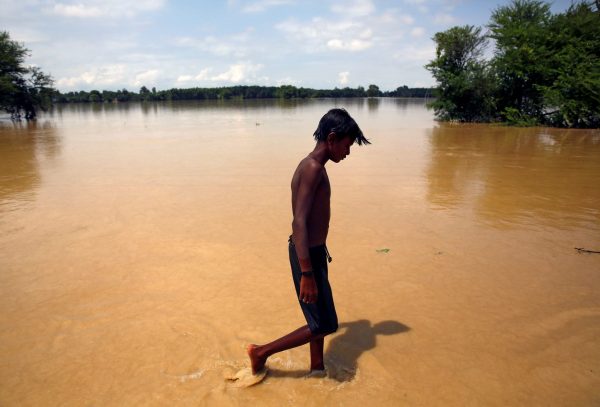Floods, storms, landslides, droughts, wildfires, hail and tornados are the new norms of South Asia’s ecology. Increases in global temperatures have not only caused rising sea levels, but have also impacted the availability of agricultural land for cultivation. Equally alarming is the influence of rising temperatures on growing conditions for crops, with increases in crop failures and production declines threatening regional food security.
Based on the Global Climate Risk Index, Bangladesh and Pakistan have been assigned a global rank as high as 6 and 7 respectively in terms of risks associated with climate change, with related annual GDP losses of close to 0.7 per cent. But other countries in South Asia have not fared well either. Coping with fragile mountainous ecosystems is a challenge for Bhutan and Nepal, and addressing risks associated with low-lying coastal areas remains crucial for Bangladesh and Sri Lanka. India and Pakistan also face the challenge of sustaining agricultural production in drought prone arid and semi-arid regions.
Ongoing research indicates that countries in the region experienced the highest decadal average temperatures recorded from 2001–2010. The decadal average temperatures increased the most in Afghanistan, rising by 1.57 degrees Celsius in the last hundred years. Bhutan was hotter by 1.28 degrees Celsius and Pakistan by 1.2 degrees Celsius for the same period. Bangladesh, Bhutan, India and the Maldives also exhibited higher temperature volatilities during the same period.
Given the already precarious food security situation in the region, rising temperatures and erratic monsoons will exacerbate the dismal conditions facing the undernourished in South Asia. Small landholders, the landless and women are expected to be the most vulnerable.
Several studies have estimated yields to decline the most in South Asia as compared to other regions, irrespective of the crop considered. Wheat yields are expected to decline by 45 per cent compared to 35 per cent for sub-Saharan Africa. Rice yields too are expected to decline by 0.75 tonnes per hectare in India with a 2–4 degrees Celsius temperature increase. Although the share of rice in caloric intake has fallen, poor households continue to spend a disproportionate amount of their income on rice as a staple food.
Adapting to climate change remains crucial for South Asian countries. It is important to design and implement proactive and reactive policies at all levels of governance.
At the national level, many countries have developed their own national adaptation programs. Constructing ‘bunds’ — embankments used to stop the flow of surface water and run off — in India, improving livestock rearing productivity in Pakistan and Nepal, and using bamboo for drip irrigation in Bhutan are a few examples. Households in South Asia have also adapted by planting different crops, using a better variety of seeds and altering the timing of crop plantation.
But adaptation efforts remain fragmented. Equally disappointing is the decline of public investments in agriculture for South Asian countries. In Bhutan for instance, investment declined from over 30 per cent in 1980 to under 10 per cent in 2015. Given the government’s inability to finance agricultural infrastructure, public–private partnerships need to be promoted.
Water security is also a contentious issue. The Asian Water Development Outlook reports South Asia as a global ‘hot spot’, with many countries in the region classified as having ‘hazardous’ water security. Other consequences of climate are bound to further impact water availability. Agricultural irrigation demand in arid and semi-arid regions of Asia is estimated to increase by at least 10 per cent for an increase in temperature of 1 degree Celsius.
While expanding irrigation remains important, improving irrigation management systems cannot be neglected. Regrettably, not much is being done. India’s adoption of sprinkler and drip irrigation ensuring ‘more crop per drop’ is one positive example that needs replication.
Finally, regional cooperation is required to avoid the wasteful duplication of limited resources. Asian regional research organisations — such as the Asia-Pacific Association of Agricultural Research Institutions and the South Asian Association for Regional Cooperation — could develop initiatives towards regional cooperation for food security. To counter volatility in food prices, building regional food stocks and operationalising the South Asia Food Bank may also be explored.
Individual countries should take the lead. While Bangladesh could initiate the dissemination of knowledge in setting up micro-credit systems, India could be a forerunner in publicising the private sector’s participation in agricultural markets. Such interactions would undoubtedly go a long way in strengthening the capacity of South Asia to mitigate the adverse impact of climate change on agriculture and food security.
Simrit Kaur is Professor of Public Policy at the Faculty of Management Studies, University of Delhi. Harpreet Kaur is Assistant Professor at the Sri Guru Gobind Singh College of Commerce, University of Delhi.

